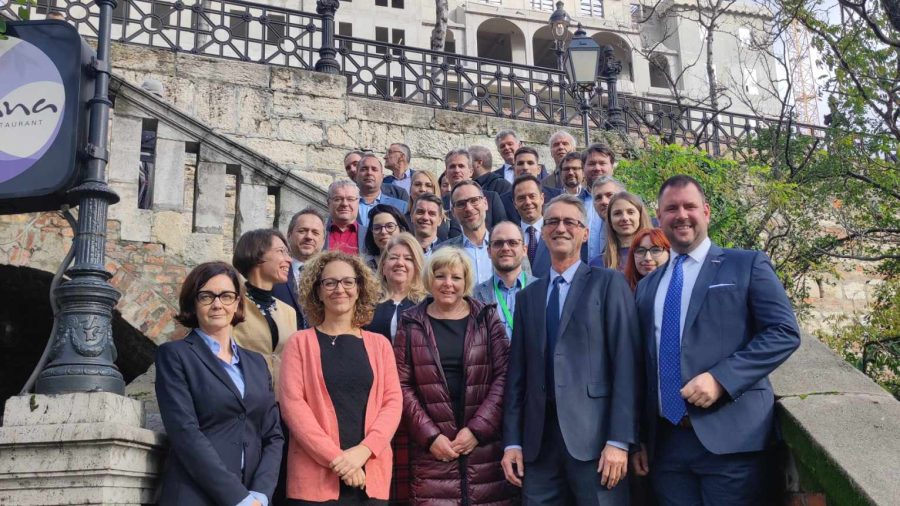How to unleash the renovation wave in Hungary?
The renewal of Hungary’s outdated housing stock can no longer be delayed. Residential energy consumption in Hungary accounts for the largest share of total final energy consumption (32%), most of which is used for heating. At the same time, Europe’s lowest residential energy prices ensure that households are protected from energy price volatility and keep their heating costs affordable. However, the poor energy performance of the building stock and the lack of financial savings for households, combined with low overheads, have delayed the renovation of buildings for several decades now. The building stock must transform rapidly to meet the country’s energy efficiency and emission reduction targets. A modern and energy-efficient housing stock can ensure a lasting reduction in our energy consumption by 2050, reduce Hungary’s high dependence on Russian natural gas and, not least, ensure comfortable and healthy homes.
Yet energy efficiency renovation is a neglected topic in domestic energy policy. To modernize the stock, 130,000 dwellings would need deep renovation every year, whereas the reality is partial renovation of a few tens of thousands of dwellings. According to a previous MEHI survey, households mostly finance renovation activities from their own resources, and as a result, only make minor improvements. Shallow renovation measures do not result in significant energy savings. Another typical behaviour is that Hungarian households postpone even the smallest, otherwise affordable, energy renovation activity in order not to miss out on state support. The most common response to the energy crisis has not been to increase building renovation, but to reduce heating costs by lowering indoor temperatures. This is not surprising, given the lack of a comprehensive building renovation program and the fact that existing subsidies mainly serve social policy purposes and are not linked to energy-saving requirements.
The low renovation activity and the downturn of new construction in 2022-2023 have also led to a sharp decline in the construction industry. Potential renovators and the industry are waiting for the arrival of EU funds and the announcement of a new subsidy scheme, but the delay and wait-and-see approach is exacerbating the situation for the construction industry.
A predictable and long-term energy renovation program could slowly but surely bring a solution to the above problems. According to the results of previous surveys, a non-refundable subsidy program of around 30%, combined with a favourable loan, could significantly increase the number of renovations, and a sustained increase in demand would also moderate fluctuations in the performance of the construction industry. It would be best to segment the renovation subsidies according to building type and income, since borrowing is often not a realistic option for low-income households, and a higher proportion of state subsidies is necessary for those in energy poverty. In the case of condominiums, a well-functioning form of support was the housing savings fund previously supplemented with state support. There would also be a high need for technical assistance in the form of one-stop-shops, so that renovations are in-depth renovations.
The revised NECP of Hungary does not give, however much hope, the approximately 50 000-60 000 home renovations planned in the domestic strategic documents fall far short of what is needed. Energy renovation of the building stock does not come as a first priority when spending RRF resources either. So far, we have only seen RRF-financed calls for tenders for the support of renewable energy and storage, and e-mobility.
It is high time to give voice to a comprehensive renovation program and prioritize energy efficiency in public policy and funding decisions. This was represented by Hungarian and Central and Eastern European (CEE) industry leaders who came together for the second time to discuss how energy efficiency and building renovation be prioritized in public policy. Previously, seven leading companies of the building renovation sector signed a memorandum at the C4E Forum committing to jointly raise the profile of building retrofit and energy efficiency in public policy discussions across the CEE region. The seven signatories were Daikin Central Europe, Danfoss, Knauf Insulation, ROCKWOOL Group, Saint-Gobain, Signify, and VELUX, with more than 42 thousand employees and significant economic power in the region.
The second working meeting took place last week in Budapest, followed by a business-stakeholder event organized by MEHI Hungarian Energy Efficiency Institute /Magyar Energiahatékonysági Intézet. It was the first of its kind to provide a platform to strengthen the dialogue among the Memorandum signing regional businesses at the local level, with the added force of advocacy and expert organizations, and domestic stakeholders, including banks, energy suppliers, and an enlarged group of Hungarian manufacturers of energy-efficiency products and services (Erste Group, OTP Bank, MBH Mortgage Bank, Masterplast, MFB Bank, Baumit, Bachl, Schneider Electric, E2 Hungary).
Panel members shared their views on the challenges of domestic renovations, and how the construction sector and the whole value chain could benefit from a predictable policy and regulatory environment. Participants raised their voices for a comprehensive, long-awaited building renovation program that would be necessary for a massive increase in the number and depth of domestic building renovations. Industry leaders identified the necessary steps each stakeholder group can take to promote the renewal of our wasteful building stock so that Hungary can reap multiple benefits such as healthy, comfortable, energy-efficient, and decarbonized homes.
For Hungary, the stakes are raised even more by the missing piece of the Fit for 55 package, the EPBD, which is under revision and the recast negotiations are approaching conclusion. The new EED and EPBD, together with RED are going to be game changers for buildings. Action on buildings is unavoidable, and Hungary has no more time to waste. The large energy-saving potential of the building stock calls for renovation, which could be just the right priority topic of the Hungarian presidency in 2024.

